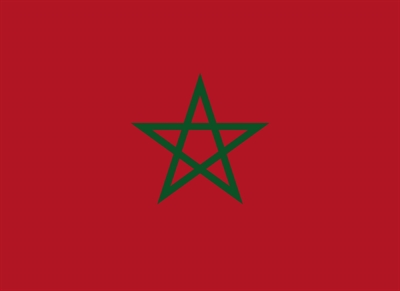Morocco - CESCR - Women's Rights - August 2015
Country: Morocco
Type: Intl Mechanism Submission
Issues: Children's Rights, Economic, Social and Cultural Rights, Gender-Based Violence, International Advocacy, Women's Rights
Mechanism: UN Committee on Economic, Social and Cultural Rights
Report Type: Shadow/Parallel Report
The Advocates for Human Rights and Mobilising for Rights Associates submitted a joint shadow report for the 56th Session of the UN Committee on Economic, Social and Cultural Rights. The report detailed Morocco's failure to comply with its obligations under the International Covenant on Economic, Social and Cultural Rights with regard to violence against women.
Morocco has failed to uphold women's economic, social, and cultural rights. A 2011 national study found that 62.8 percent of women in Morocco aged 18-64 had been subjected to some form of violence during the year preceding the study. The country lacks sufficient legislation to address violence against women. Under the law, a victim must suffer injuries that result in more than 20 days of disability in order to bring forward an assault case. The law does not criminalize marital rape. In order to prosecute rape cases, victims must present evidence of physical injuries to prove they did not consent. Women are often sexually harassed in the workplace, but the law does not consider these offenses criminal unless they are committed by a superior attempting to obtain sexual favors.
Moreover, women experience multiple barriers to reporting gender-based violence, including lack of trust in the police and judicial systems, fear of losing one's job, and social acceptance of the justification for domestic violence. Legal shortcomings impede the prevention, investigation, and punishment of violence against women. Although the government has attempted to introduce new legislation in response to human rights bodies, none has been approved or implemented by lawmakers.
Morocco lacks proper resources to protect victims trying to escape their abusers. The government ignores the vulnerability of victims of domestic violence by failing to provide sufficient law enforcement security for shelters. Existing shelters are located in big cities, and rural women may not be able to afford transportation to reach them. Many shelters limit the duration of stay and the number of children a mother may bring with her. Morocco also lacks affordable health care mechanisms to protect victims of violence. Victims must go to certified Violence against Women (VAW) units, which exist only in big cities. Also, doctors may attempt to reconcile the family before granting a woman the documentation necessary to bring a criminal complaint.
Polygamy is still practiced in Morocco despite the country's new Family Code. The legal age of marriage is 18, but the Ministry of Justice continually makes exceptions to allow marriage of minors. In 2011, nearly 12 percent of all marriages involved a minor. Judges issue authorizations to marry minors based on their own cursory visual examination of the girl's physical appearance.
The Advocates' report concluded with recommendations for the Moroccan government. The recommendation include revising sexual harassment laws and expanding the definition of sexual harassment; implementing violence against women legislation to provide sufficient resources, protection, and justice for women victims; and abolishing both polygamy and marriage of minors.




